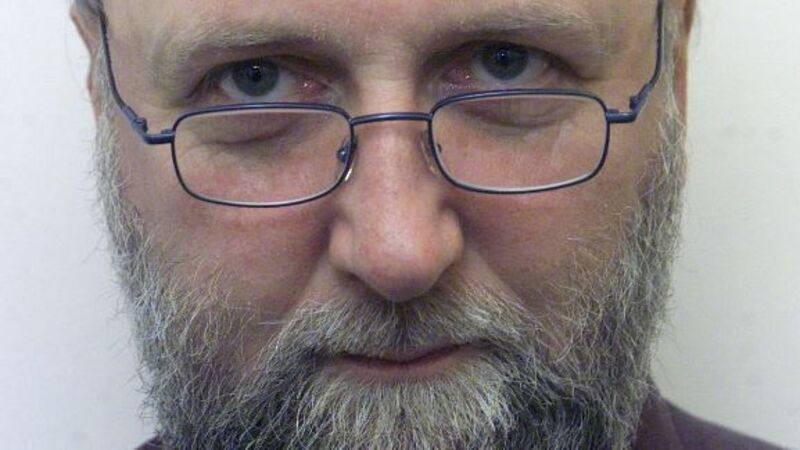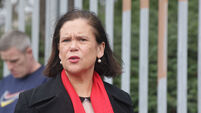Brandt’s grand coalition should be a guiding light for our new government

But among the consequences is likely to be a lot of pressure on oil prices — perhaps even an oil shortage. That could have devastating consequences on Irish jobs and families.
Sometime in the next month or so, a decision will have to be made on whether, and to what extent, the wreckage of our banking system will need a further injection of capital. The so-called “stress tests” to which Enda Kenny kept referring throughout the election campaign could be coming home to roost.
Within the next month or so also, we’ll be getting another visit from the gentlemen of the IMF. They’ll be expecting the usual obsequious welcome, and will want to be told that nothing in the election result will have disturbed their cosy relationship with the outgoing government.
And of course, among the first tasks facing the Taoiseach on March 9 will be a bruising encounter with his European counterparts at a forthcoming summit. They too will not want to hear that there’s a stroppy new crowd in town that wants to overturn the arrangements now in place.
Even before that summit, both Eamon Gilmore and Enda Kenny will be attending meetings of their European counterparts. The last time either of their parties was in government, they could rely on the solidarity of such gatherings, and especially of their sister parties in smaller countries. They will discover that all those relationships have fallen into disrepair, largely because Ireland is seen as having forgotten its roots during the brash and arrogant years of our prosperity. We spent too much time lecturing other countries about how all they had to do was to follow our lead.
Welcome to government, lads. (And women, I hasten to add — I think and hope there is every reason to believe that the next government will contain more women than any previous one. I met a man at a doorstep during the election campaign who told me it was a tragedy that women weren’t running the banks. How right he was.)
I’m assuming, writing this, that at the end of the day the next government will be a government of left and right — Labour and Fine Gael. Between now and the formation of that government, we might see some silly games being played, especially if Fine Gael want to strengthen their negotiating position. But at the end of the day there is only one realistic option. And that option will inherit a bigger set of problems than any previous government we have ever had.
We know the disastrous shape of the economy right now. But there is every possibility that we can add rising oil prices, rising interest rates, increased mortgage default, and unsustainable personal debt (think credit card debt, for instance) to the list of challenges the government will face on its first day in office.
They will need to be strong, determined, resolute. They’ll need to know that this is a job that can only be done brick by brick. Right from the beginning, they’re going to have to take decisions that won’t pay off until very near the end of their term.
They’ll need to be creative as well, and really imaginative. There is huge scope — and very considerable demand — in the programme of political reform to which both parties are committed. But reform demands energy and risk. It’s not going to be easy to allow Dáil Eireann to be a real platform for opposition energy, especially when it’s not necessary because the government will have the numbers, and when they look at the parties likely to be manning the opposition benches.
Beyond reform, they need to be a government of ideas, and above all a government that talks to the people. Their only chance of securing a second term lies in their ability to communicate, honestly and openly, with a disaffected people who have invested great hope in them — and may easily be disappointed.
If you’ll forgive the cliché, this new government really needs to think outside the box. Things like, for example, a Council of Economic Advisers, harnessing the best analysis and critique and channelling it into positive action, would really challenge ministers, but would ultimately add lustre to the reputation of an open government. A social policy think-tank would be just as important, enabling the government to prioritise, in the knowledge that it was tapping into the best brains in the country in this area.
If they’re looking for a model in how to do this, I can suggest a name. Willy Brandt. Brandt was the Mayor of Berlin and leader of Germany’s Social Democrats at a time of immense economic and political crisis in his country. When the opportunity came, he swallowed hard and agreed to become half of a “Grand Coalition” — Social Democrats and Christian Democrats, who hadn’t been able to agree about the time of day for a political generation, working together for the good of the country. That government, the Grand Coalition that governed Germany from the middle to the end of the 1960s, strengthened the foundations of German economic prosperity. Brandt himself served in that Government as deputy chancellor, but went on soon to become a great chancellor of Germany, whose values and ideas made a huge contribution to the end of the Cold War, and earned him a Nobel Peace Prize.
Brandt was a political giant, whose career was thought to be over when he made a historic compromise with his ideological enemies. But he proved it could be made to work for the common good.
Brandt applied one principle to his work in coalition. He built partnerships on mutual respect, rather than on self-interest. And if a grand coalition is to work in Ireland, it can only be as a mutually respectful partnership. We find ourselves now in a moment where two parties have each won a mandate that is absolutely historic in their own terms — and that is unique in our politics. Neither can afford to regard their mandate as bigger or better than the other.
Instead, mutual respect must be the order of the day. A partnership built on mutual respect will involve compromise — but the only worthwhile aim of that compromise must be to build a new sum. We’re too used to zero sum politics in Ireland — those games where one side can only be seen as winning where the other loses.
Ireland today needs a sum where two plus two equals five. This government has to be better than its individual components, as proud as they are. Anything less will let us down.
Brandt once said that democracy is not about utility, but morals. His values made him the most reforming chancellor in Germany’s history. But he also famously said: “It often takes more courage to change one’s opinion than to keep it.”
When he changed his opinion, he said so — he didn’t pretend. That might be worth thinking about over the next few weeks.






